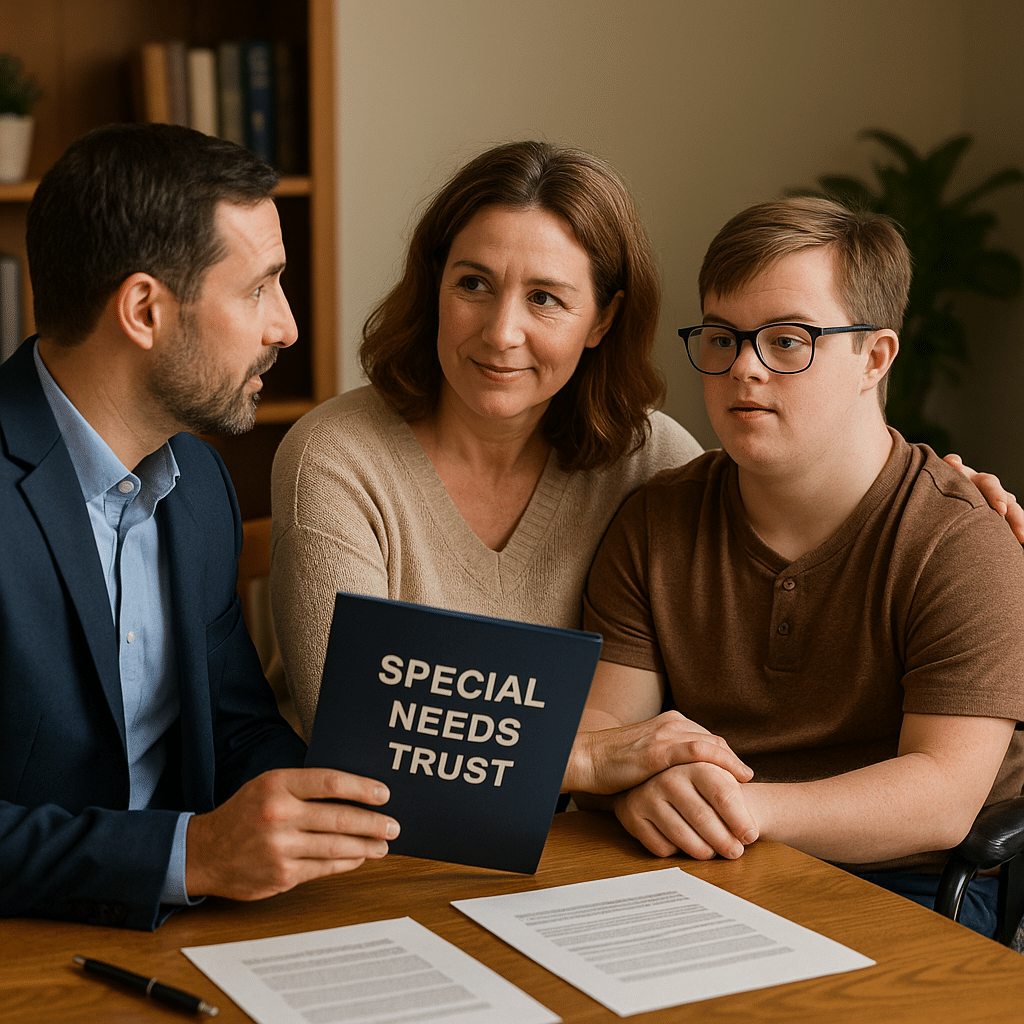Families caring for loved ones with disabilities often worry about the future — especially how to provide financial support without affecting government benefits like SSI or Medicaid. That’s where a special needs trust (SNT) comes in.
But not everyone automatically qualifies. Let’s break down who qualifies for a special needs trust in Georgia, what types exist, and how to ensure your loved one stays protected.
What Is a Special Needs Trust?
A special needs trust is a legal tool designed to hold and manage money for a person with disabilities without disqualifying them from government assistance programs.
Funds in an SNT can be used to pay for:
- Medical expenses not covered by Medicaid
- Therapy, education, and transportation
- Personal care attendants
- Quality-of-life expenses like travel, hobbies, and technology
Learn more about trust planning options on our Georgia Trust and Estate Planning page.
Who Qualifies for a Special Needs Trust?
To qualify for a special needs trust, the beneficiary must meet specific disability and benefit requirements.
1. The Beneficiary Must Have a Qualifying Disability
According to federal law (42 U.S.C. § 1382c), the person must have a physical or mental impairment that:
- Substantially limits major life activities, and
- Is expected to last at least 12 months or result in death.
The disability must be recognized by the Social Security Administration (SSA) for SSI or SSDI eligibility. See the SSA’s definition of disability for details.
2. The Beneficiary Must Be Under 65 (for Certain Trust Types)
For a first-party special needs trust (funded with the beneficiary’s own assets), the individual must be under age 65 when the trust is created.
This rule doesn’t apply to third-party special needs trusts, which are funded by family or others on behalf of the person with disabilities.
3. The Trust Must Be Established Properly
To be valid, the trust must:
- Be irrevocable.
- Be created for the sole benefit of the person with disabilities.
- Name a qualified trustee (individual, family member, or professional).
- Meet Georgia and federal Medicaid rules for structure and spending.
Improperly drafted trusts can lead to Medicaid ineligibility or require expensive corrections later. Working with a Georgia special needs planning attorney ensures the trust meets all legal requirements.
How Do You Qualify for a Special Needs Trust?
Families can set up a special needs trust under several circumstances:
- When the disabled person inherits money or receives a legal settlement.
- When parents or relatives want to leave an inheritance without affecting SSI or Medicaid.
- When guardians want to ensure long-term care and financial stability.
Our attorneys often help families establish special needs trusts as part of comprehensive estate plans, ensuring financial security and compliance with benefit programs.
Is a Special Needs Trust a Qualified Disability Trust?
A qualified disability trust is a specific type of special needs trust that receives favorable tax treatment under the Internal Revenue Code (§642(b)(2)(C)).
To qualify as a Qualified Disability Trust (QDT):
- The beneficiary must meet the SSA’s definition of disability.
- The trust must be irrevocable.
- The trust must be for one disabled beneficiary.
This type of trust allows a larger tax exemption, reducing the overall tax burden on trust income. See the IRS Qualified Disability Trust guidance for more details.
Who Can Create a Special Needs Trust?
A special needs trust can be created by:
- A parent or grandparent
- A legal guardian
- A court
- The individual with disabilities (if mentally capable and under age 65)
For families in Georgia, it’s essential to have an attorney familiar with both state trust law and federal Medicaid regulations to ensure compliance.
Protecting Your Loved One’s Future
Setting up a special needs trust correctly can mean the difference between long-term stability and financial hardship. The rules are strict, but with the right guidance, you can preserve eligibility for government benefits while enhancing your loved one’s quality of life.
Our Georgia special needs planning lawyers can help you evaluate eligibility, draft a compliant trust, and ensure your family’s peace of mind.





